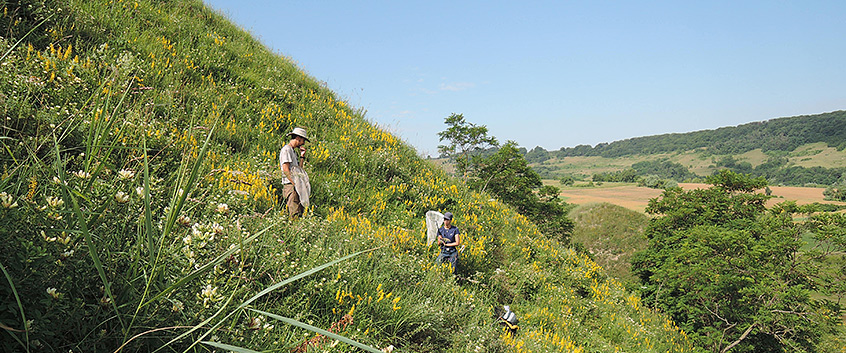
Department Species Interaction Ecology
How can the conservation of the biodiversity of plants and insect pests be promoted in the face of global change and translated into effective adaptation strategies? The Department of Species Interaction Ecology aims to advance the understanding and conservation of plant and pollinator biodiversity in the face of global change and to work collaboratively to translate this knowledge into effective management and adaptation strategies. Through rigorous research and technological innovation, the department fills knowledge gaps in population, community, and interaction network ecology and is revolutionizing the monitoring of and conservation prioritization of biodiversity.
Scientists in the Department of Species Interaction Ecology seek to understand how human-mediated environmental changes influence the dynamics of plant populations, plant-animal interactions, and community patterns at different spatial scales. In particular, they focus on understanding the causes and consequences of exotic plant invasions, quantifying the effects of environmental drivers on plant population dynamics, plant-pollinator interactions and pollen limitation, developing optimal strategies for restoring degraded habitats, and understanding the factors that determine biodiversity and composition of forest communities.
The aim is to understand the complex relationships between organisms and their environment at different spatial scales using observations, experiments and global meta-analyses.